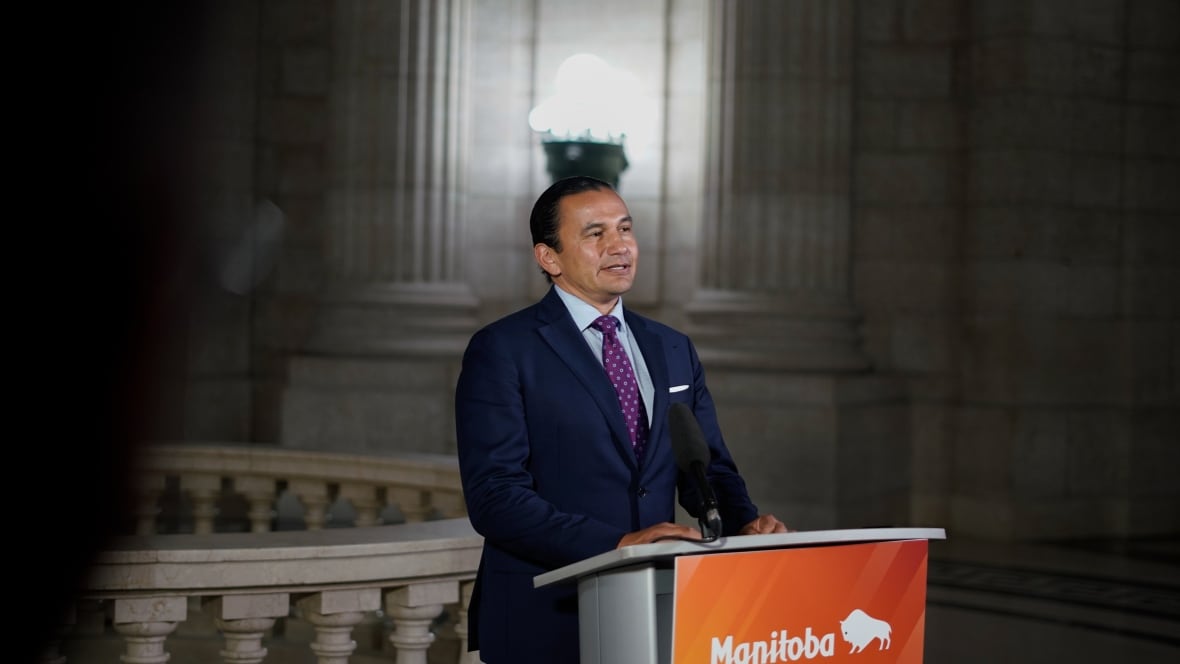Canada's tariffs on Chinese EVs created '2-front trade war' hurting Prairie canola, pork producers: Kinew

Manitoba Premier Wab Kinew is asking the prime minister to scrap Canada's 100 per cent tariff on Chinese electric vehicles in return for China lifting its tariffs on Canadian canola and pork.
Kinew says in a letter to Mark Carney on Saturday that while he believes protecting Canada's vehicle industry is important, he says the country's approach "has created a two-front trade war that disproportionally affects Western Canada."
The premier says in the letter that China's tariffs — widely seen as a response to Canada imposing the electric vehicle levy — have already caused a sharp drop in canola prices and that one vertically integrated pork producer in Manitoba is reporting a $19 million negative impact on an annual basis.
Canada imposed the electric vehicle duty last year in lockstep with the United States, which also has a 100 per cent tariff on Chinese electric vehicles, with Canada arguing the measure is meant to protect the country's automobile industry.
Saskatchewan Premier Scott Moe has previously said he wanted Ottawa to do away with the electric vehicle tariff, but only if the country remained on good terms with the United States, and he has since said removing it would not be a simple fix.
Kinew says every day the tariffs remain in place, the harm to Prairie producers deepens.
"Canada's trade policy must balance long-term industrial goals and national security with immediate economic realities as well as the national responsibility to grow every region of Canada's economy," Kinew said in his letter to Carney.
Kinew noted that the Chinese ambassador to Canada also recently said that China would be prepared to lift its tariffs on canola and pork in exchange for Canada removing the tax on Chinese electric vehicles.
CTV reported that Wang Di made the pledge through an interpreter during an interview for its program Question Period, which aired Sunday morning.
Kinew called it a "critical moment" and urged Carney's government to "seize the opportunity."

The ambassador said in an opinion piece posted on the embassy's website Thursday that the tariff on Chinese-made EVs contravenes World Trade Organization rules, and removing it "will once again highlight the image that Canada has been trying to establish as an advocate for a rules-based international economic and trade order."
China charges a 76 per cent tariff on Canadian canola seed imports and a 100 per cent tariff on canola oil, meal and peas. China also put a 25 per cent tariff on certain Canadian pork, fish and seafood products.
Ottawa has accused Beijing of unfairly subsidizing its electric vehicle industry and flooding international markets with cheap cars to gain a competitive advantage.
Ottawa said last month it was reviewing its decision to impose 100 per cent tariffs on Chinese electric vehicles, but is offering no clarity on when the review started or when it might conclude.
The tariffs took effect on Oct. 1, 2024.
At the time, the regulatory order introducing them stated the measure would be reviewed within one year of implementation.
Figures last week show Saskatchewan's canola exports to China have taken a nosedive, with data showing that Saskatchewan's exports to China fell to $96 million in August, a 76 per cent drop when compared with the same month last year.
Ontario Premier Doug Ford said in a letter to Carney last month that Canada must maintain its 100 per cent tariff on Chinese electric vehicles as Ottawa looks to secure a new trade deal with the U.S. and protect Canada's auto sector.
Ford did not mention the canola tariff in his letter to Carney.
cbc.ca





